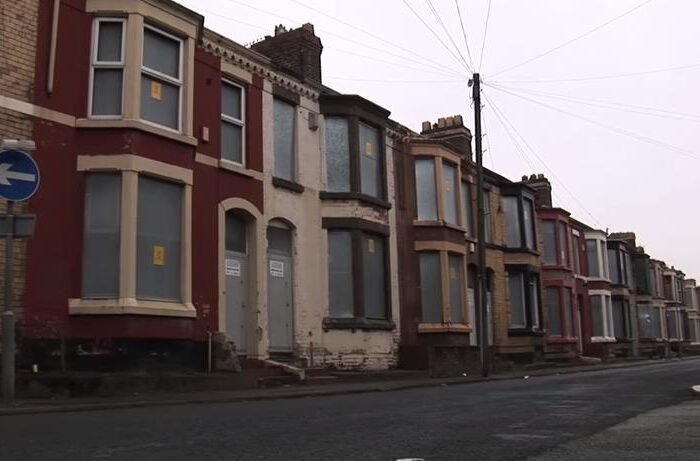
A Liverpool John Moores University student who bought a house for £1 is to be featured in a Channel 4 television series looking into the development scheme.
‘The £1 Houses: Britain’s Cheapest Street’ show will start on Wednesday, focusing on the progress made and challenges that those involved have had to overcome in renovating derelict homes in the city.
Victoria Brennan, 30, who is studying for a PhD with the School of Education at LJMU, bought one of the houses on offer in Wavertree two years ago. After substantial effort and a further £40,000 investment on renovations, she finally moved in at the end of September last year.
Victoria told JMU Journalism: “I am delighted with the final outcome. It has been difficult and frustrating at times, but I knew it would be worth it in the end.
“My favourite part is that the ideas that people thought were a bit ‘extreme’ actually came about. For example, knocking the ceiling out of my bedroom and making a mezzanine is pretty special. I feel like I have been able to put my own stamp on my house.”
The Liverpool City Council project, which started in 2013, is aiming to bring 6,000 empty and derelict properties in areas such as Toxteth, Kensington and Wavertree, back into use by selling them for just £1.
YouTube: Dale Street News
The houses are released in phases of 40 and are in high demand, with applicants having to go through a bidding process. To be successful, people have to live or work in the Liverpool area, must commit to staying in the property for at least five years, and have to prove that they have to financial capability to invest sufficiently on restorations.
Ms Brennan believes that the idea is a great opportunity to revamp old buildings that have a lot of character, but does feel that there are still some teething problems.
She told JMU Journalism: “The process took a lot longer than it should have, therefore the area is not quite as rejuvenated as I imagine the council would have wished for. I think the council needs to provide more support for this scheme as so many families could benefit.”

